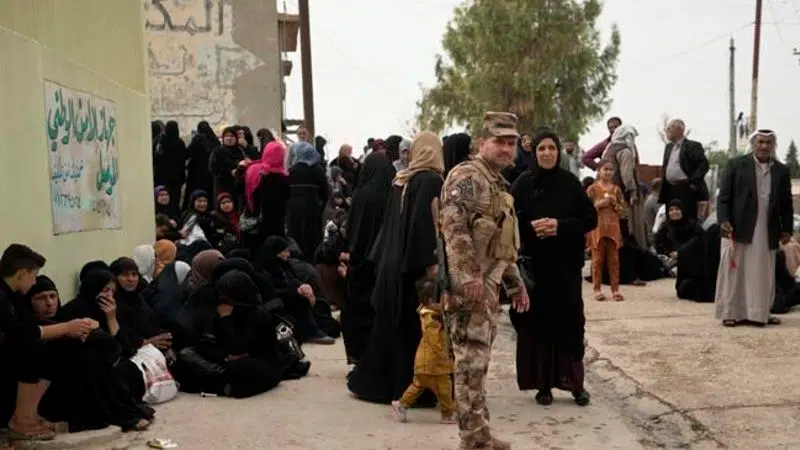
Baghdad court sentences fourth French IS member to death
BAGHDAD — The French former members of the Islamic State group were brought into the courtroom in Baghdad one after the other on Monday and made to sit inside a wooden cage in the middle. As they spoke in French, a government official typed up the translation into Arabic, which immediately appeared on a large screen behind the judge that the court could read.
Mustafa Mohammed Ibrahim became the fourth French citizen to be sentenced to death by a Baghdad court for joining the Islamic State group that once controlled large parts of Syria and Iraq before its defeat. His trial comes as questions swirl about the legal treatment of thousands of foreign nationals formerly with the extremist group.
Wearing a yellow uniform and plastic flip flops, Ibrahim, 37, told the judge, “I don’t understand the charges.”
